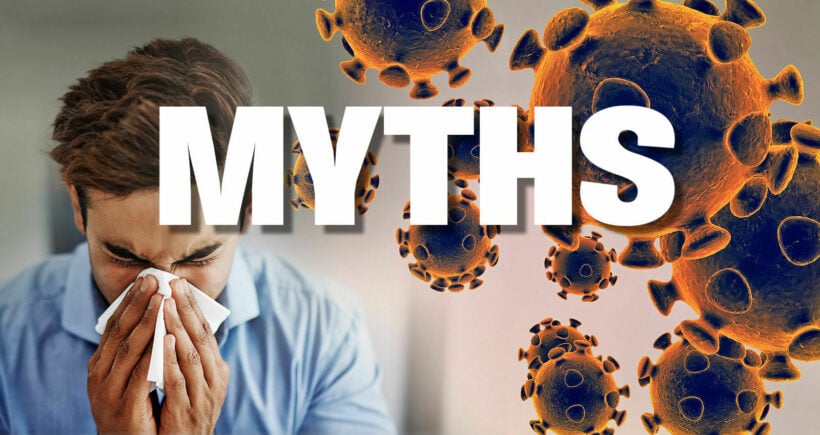COFACT debunks top 5 fake news about Covid-19 outbreak in Thailand

The pandemic is not only spreading the virus, but also the ‘infodemic’ that has caused misleading information or “fake news”. COFACT Thailand gives a list of the top 5 fake news stories and myths, relating to the latest outbreak of Covid-19, that have been circulating among Thai netizens…
- “All Thai must enter lockdown” – There was a claim that this is a voice of the Dean of Faculty of Medicine Siriraj Hospital, urging a lockdown of the whole nation. The Faculty later explained that it is not the Dean’s voice and asked people not to share the fake recording.
- Drinking lemonade can kill coronavirus – This claim became first viral in March last year. But former Director-General of the Disease Control Department has already explained that there were not obvious medical or scientific evidences to prove that. Lemon is rich in Vitamin C but it can’t kill the virus. A similar claim has it that a mix of lemon juice and soda can also kill the virus, while Department of Thai Traditional and Alternative Medicine said this was simply not true.
- Those who adopt an alkaline and vegan diets will lower their chance of becoming infected – Medical experts explains that the pH levels or acidity levels in human blood are usually between 7.35-7.45 regardless of diet types. That is a normal function of human body, and eating a lot of fruits can’t change it. They recommend sticking to a healthy, well-balanced diet.
- Mailing parcels can pass on the coronavirus – In response to this false information, Thailand Post made an official announcement that “they have imposed stringent sanitisation measures to prevent the spread of COVID-19”.
- Standing in direct sunlight can kill the coronavirus – the Disease Control Department says this is not correct, clarifying that the coronavirus can be resistant to the heat up to 90 degree Celsius, but the temperature of the sunlight is not that high to make any effect. But you might end up with a bad case of sunburn.
COFACT cofounder Supinya Klangnarong says, “These urban myths are just some of many examples of how the coronavirus outbreak attracts a large amount of fake news and misinformation. Although these claims have already been debunked by experts, some have resurfaced.”
People are urged to double and triple check information they receive before believing it and before sharing it with others to stop the circulations of misleading information.
COFACT or the collaborative fact-checking platform in Thailand is an initiative by a network of civil society in Thailand that intends to establish an open, safe, and creative space for co-finding facts in the “infodemic” era. It is one of the organisations that are currently working to deal with fake news and misinformation on the net, namely COFACT, the Ministry of Digital Economy and Society and the Sure and Share Centre of the MCOT.
People who want to check if the information or news they receive are true or false can visit COFACT website.
There are plenty of other general myths and conspiracy theories circulating around the internet HERE.
SOURCE: Thai PBS World
Latest Thailand News
Follow The Thaiger on Google News:


























